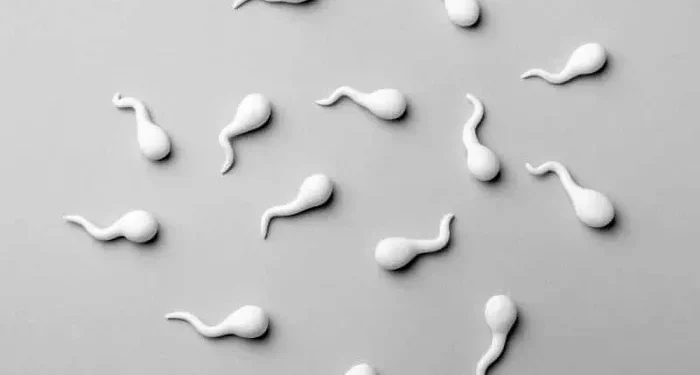Azoospermia, a condition characterized by a complete lack of sperm in the ejaculate, poses significant challenges for individuals and couples desiring to conceive. While it can be daunting, understanding the treatment options available is crucial for navigating this journey towards parenthood. In this comprehensive guide, we delve into the definition, types, causes, symptoms, diagnosis, and treatment of azoospermia, aiming to meet the needs of those affected by this condition.
Definition of Azoospermia
Azoospermia, derived from the Greek words “a” (without) and “sperma” (seed), refers to the absence of sperm in the semen. It is diagnosed when a semen analysis reveals no sperm present, despite proper ejaculation. This condition can present a significant obstacle to natural conception and may require specialized treatment to achieve pregnancy.
Types of Azoospermia
Azoospermia is categorized into three main types: pre-testicular, testicular, and post-testicular. Each type has distinct causes and affects sperm production or ejaculation differently.
1. Pre-Testicular Azoospermia: This type results from issues that interfere with hormone signals from the brain to the testicles, disrupting sperm production. Common causes include hormonal imbalances, such as hypogonadism, which can be due to conditions like pituitary disorders or stress.
2. Testicular Azoospermia: Testicular azoospermia occurs when the testicles are unable to produce sperm. Causes may include genetic conditions like Klinefelter syndrome, varicocele (enlargement of veins within the scrotum), or previous chemotherapy or radiation treatments.
3. Post-Testicular Azoospermia: This type involves the production of sperm within the testicles, but an obstruction prevents their release into the ejaculate. Blockages in the reproductive tract, such as those caused by vasectomy, infections, or congenital abnormalities, can lead to post-testicular azoospermia.
Causes
A variety of factors can contribute to the development of azoospermia. Genetic conditions, hormonal imbalances, blockages in the reproductive tract, and other underlying health issues can disrupt sperm production or ejaculation. Some common causes include:
1. Genetic Disorders: Conditions like Klinefelter syndrome, Y-chromosome microdeletions, and cystic fibrosis gene mutations can impact sperm production.
2. Hormonal Imbalances: Disorders affecting hormone levels, such as hypogonadism or hyperprolactinemia, can interfere with spermatogenesis.
3. Obstructions: Blockages in the reproductive tract, either congenital or acquired through infection or surgery, can prevent the release of sperm.
4. Varicocele: Varicose veins in the scrotum can lead to overheating of the testicles, impairing sperm production.
5. Previous Treatments: Radiation therapy, chemotherapy, or surgery in the pelvic area can damage the testicles and affect sperm production.
Symptoms
Azoospermia is often asymptomatic and may only be discovered during infertility assessments. However, some individuals may experience symptoms that prompt further evaluation, including:
Low Libido: Decreased sexual desire may indicate underlying hormonal issues affecting sperm production.
Testicular Issues: Pain, swelling, or abnormalities in the testicles could suggest problems with sperm production or blockages in the reproductive tract.
Diagnosis
Diagnosing azoospermia typically involves a comprehensive evaluation to determine the underlying cause. The diagnostic process may include:
1. Physical Examination: A thorough examination of the reproductive organs can identify any abnormalities or signs of hormonal imbalances.
2. Hormone Testing: Blood tests may be conducted to assess hormone levels, such as testosterone, follicle-stimulating hormone (FSH), and luteinizing hormone (LH).
3. Genetic Screenings: Genetic testing may be recommended to identify any hereditary conditions that could contribute to azoospermia.
4. Semen Analysis: A semen analysis is crucial for confirming the absence of sperm in the ejaculate. Multiple samples may be collected and examined to rule out temporary factors like recent illness or medication use.
Treatment Options
The treatment approach for azoospermia depends on the underlying cause and type of the condition. Several options may be considered:
1. Surgical Interventions: For obstructive azoospermia, where blockages prevent the release of sperm, surgical procedures such as vasectomy reversal or sperm retrieval from the testicles or epididymis may be performed.
2. Hormone Therapy: Hormonal imbalances contributing to azoospermia may be corrected through hormone replacement therapy or medications to stimulate sperm production.
3. Assisted Reproductive Techniques (ART): In cases where direct sperm retrieval is possible, techniques such as in vitro fertilization (IVF) or intracytoplasmic sperm injection (ICSI) can be used to achieve pregnancy.
Prevention and Lifestyle Factors
While some causes of azoospermia, such as genetic conditions, may not be preventable, certain lifestyle factors can impact sperm production and overall reproductive health. Maintaining a healthy lifestyle, including regular exercise, balanced nutrition, avoiding excessive alcohol and tobacco use, and managing stress, can promote optimal fertility.
Emotional Support and Counseling
Dealing with infertility and azoospermia can take a toll on emotional well-being. It’s essential for individuals and couples to seek support and counseling to cope with the challenges they may face. Resources such as support groups, therapy sessions, and online forums can provide valuable emotional support and guidance throughout the journey.
Conclusion
In conclusion, understanding the various aspects of azoospermia treatment is crucial for individuals and couples navigating infertility. By addressing the definition, types, causes, symptoms, diagnosis, and treatment options, along with offering support and encouragement, this guide aims to empower those affected by azoospermia to make informed decisions and embark on their path towards parenthood with hope and resilience.
Related Topics:
What Certain Drugs Can Impact Fertility: A Complete Overview



























